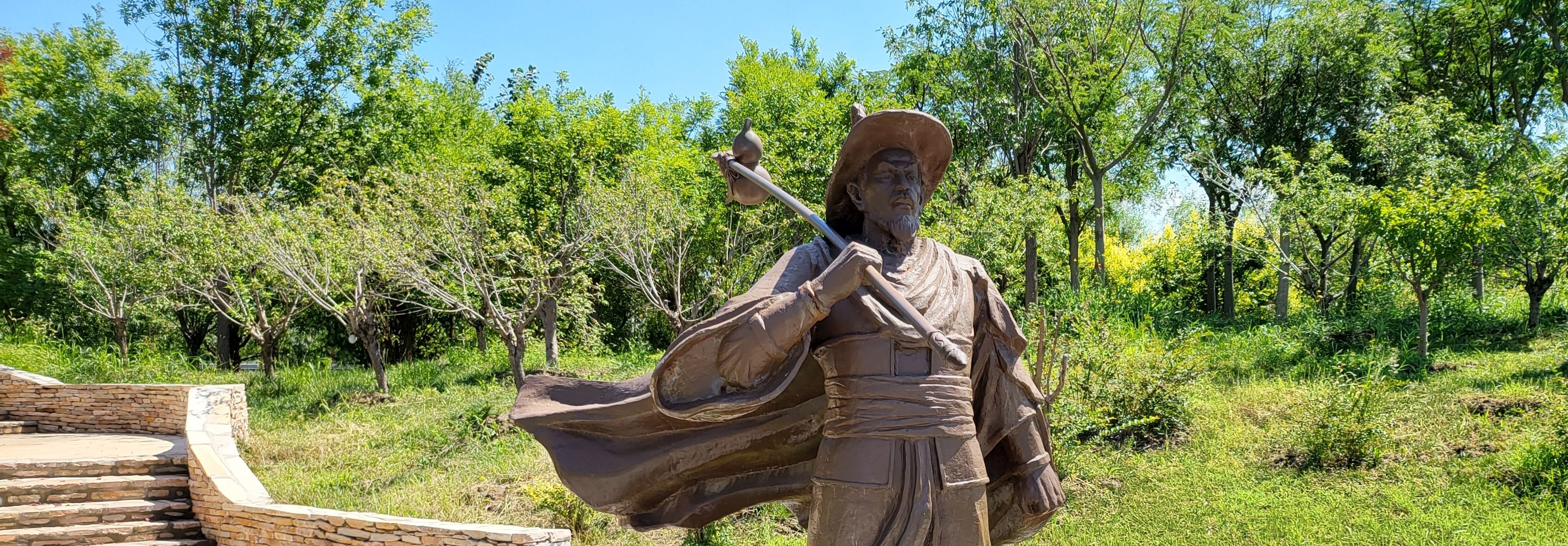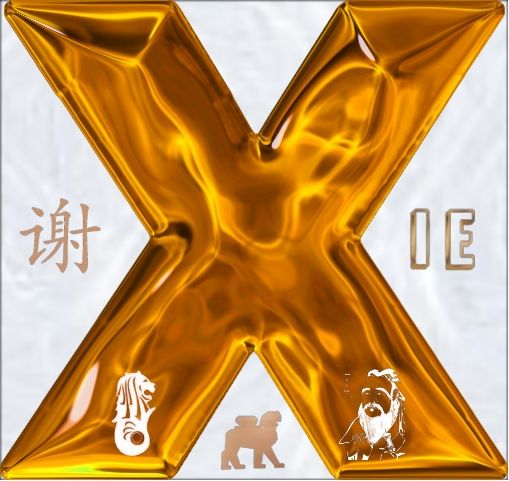Roman elegance and Goethe
પ્રકાશિત: 23.05.2024
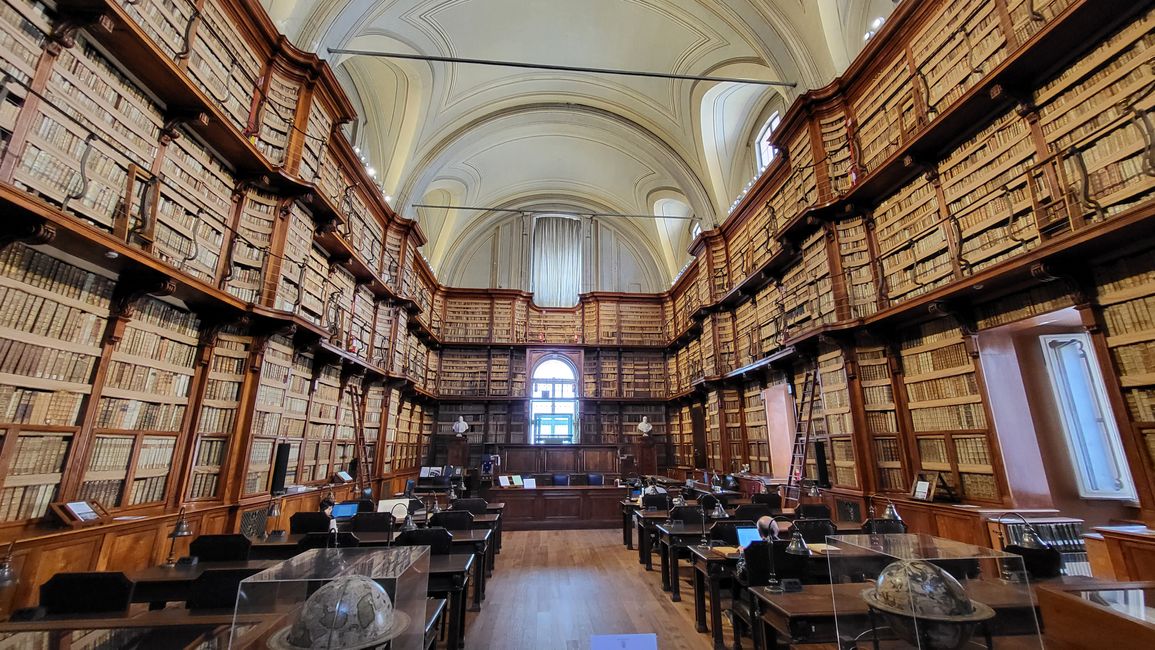
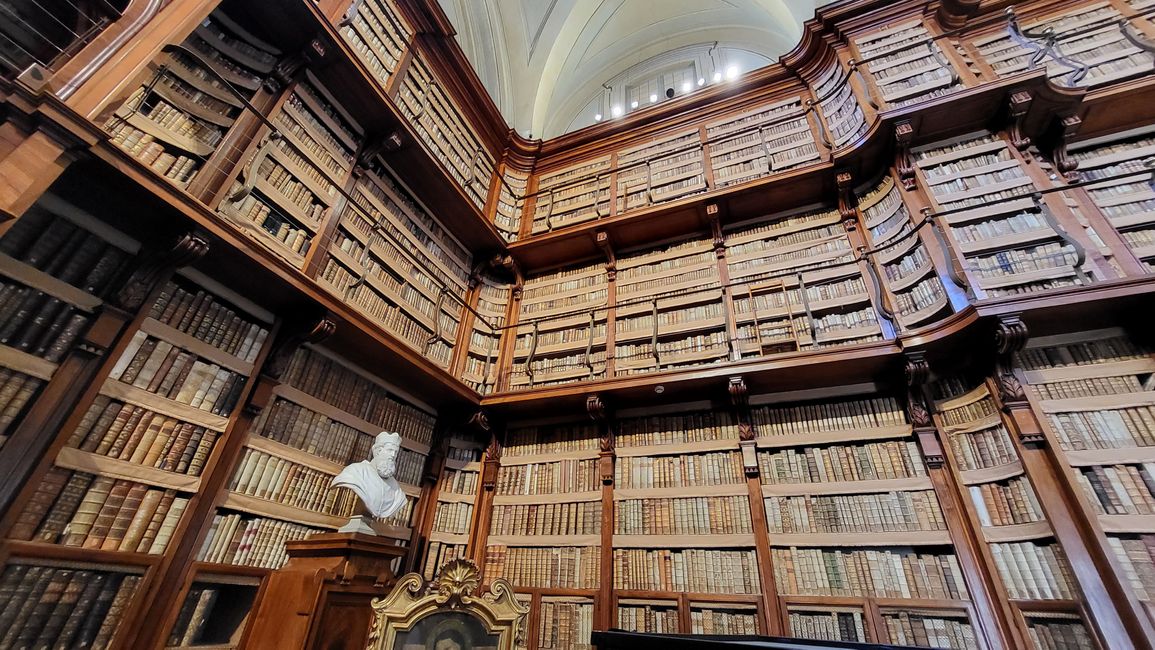
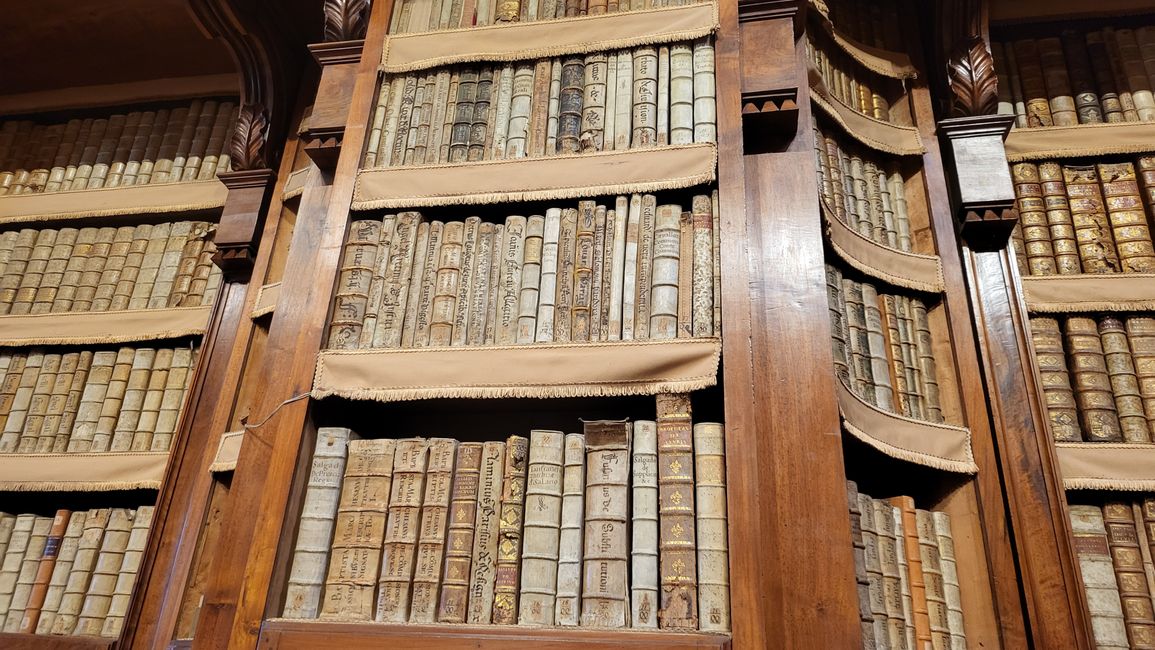
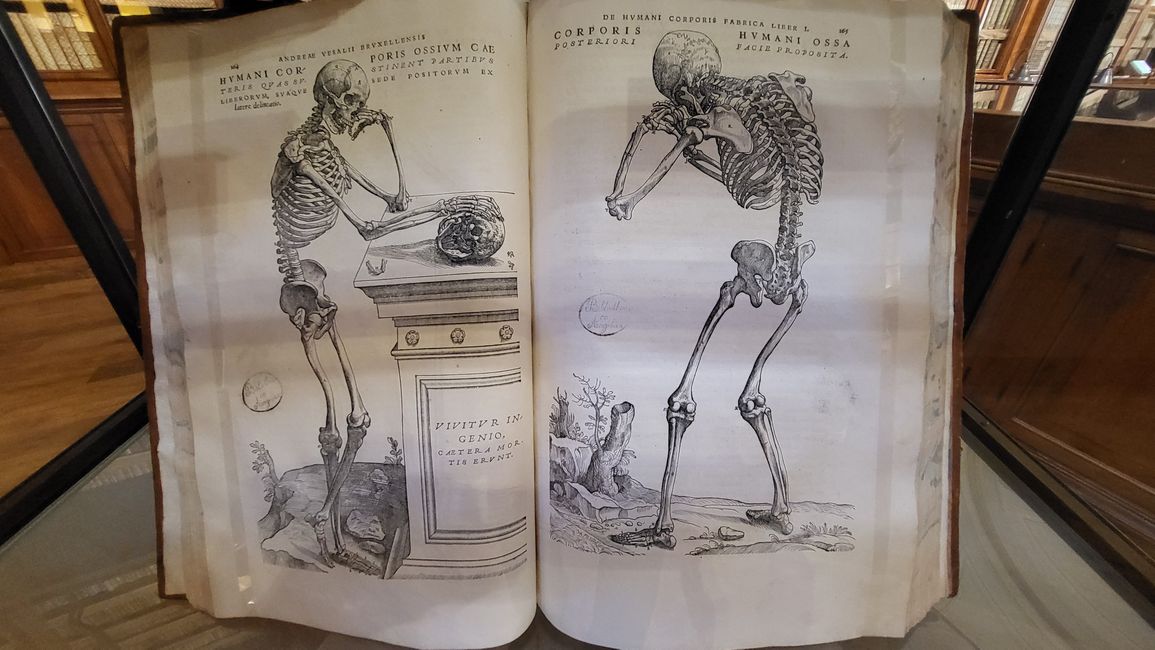
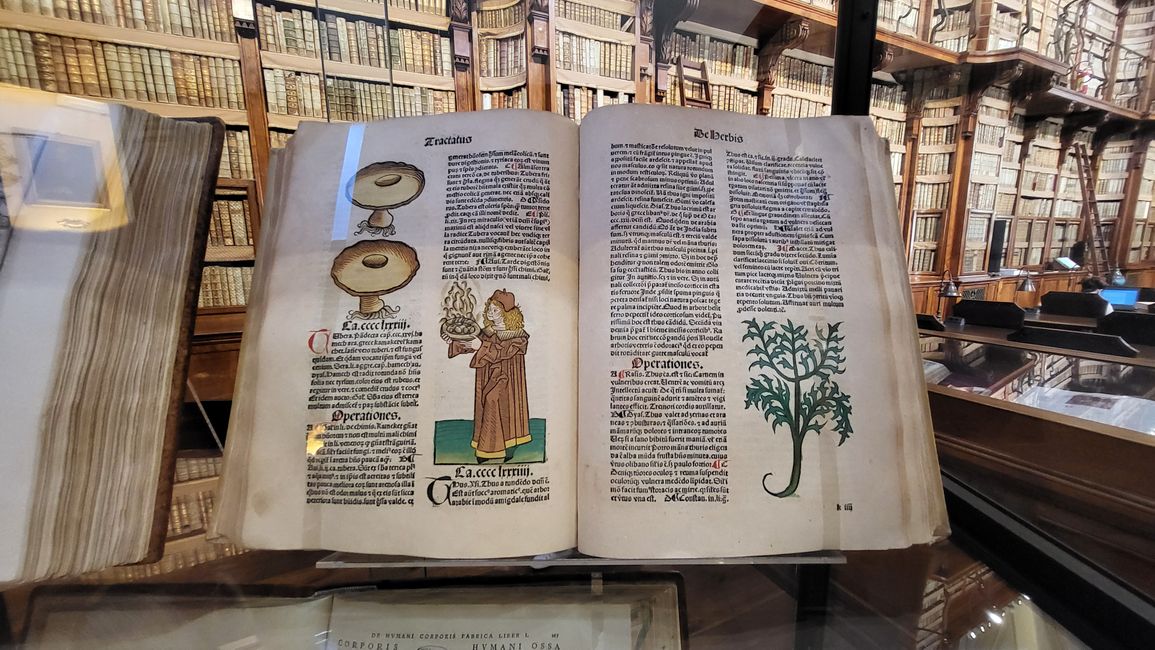
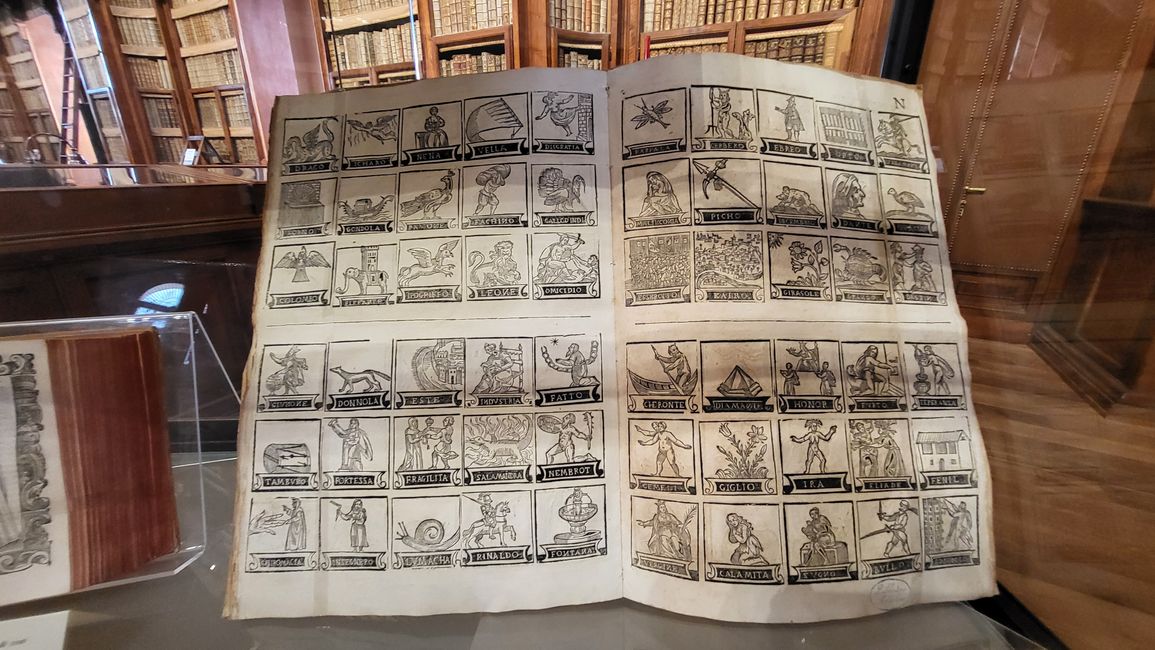
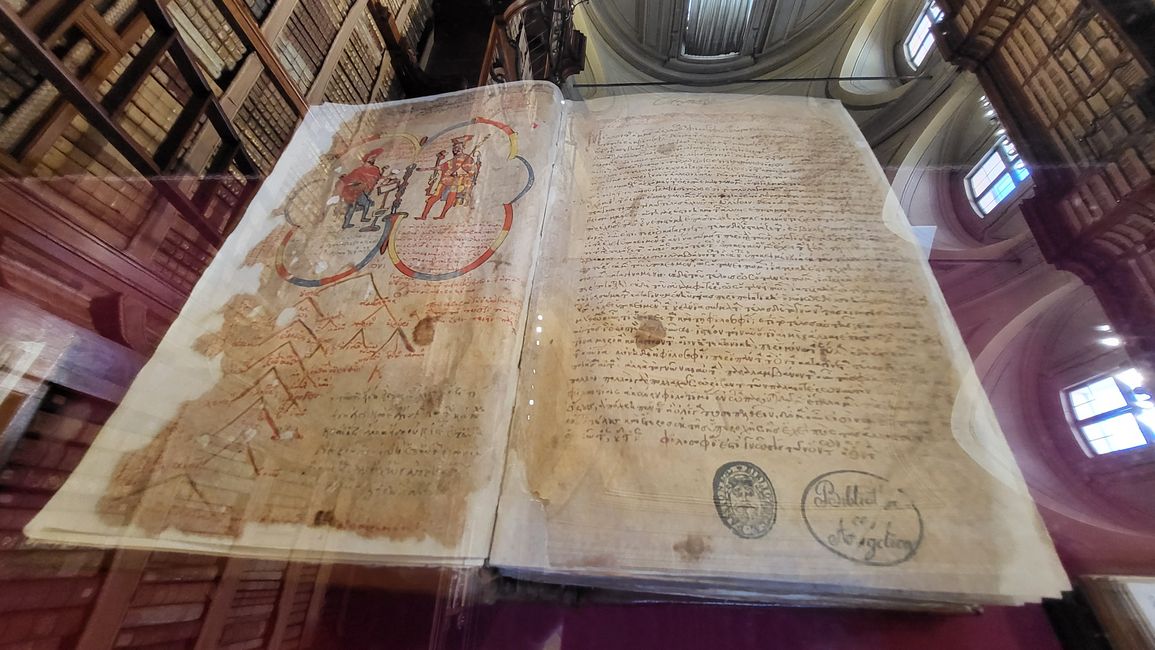
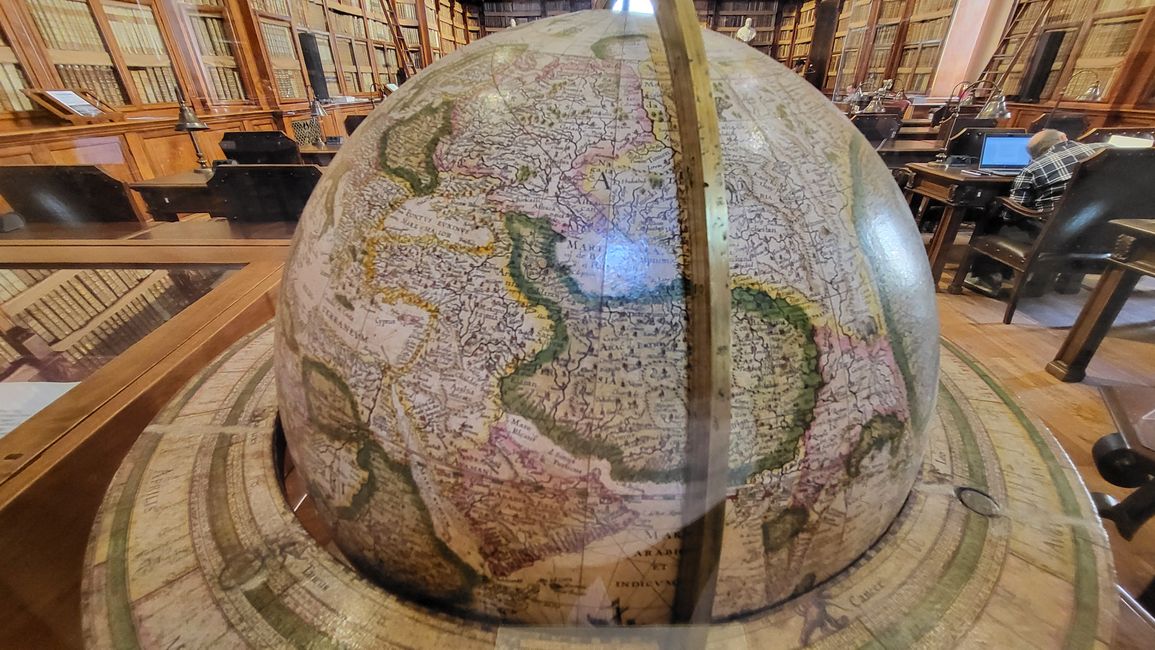
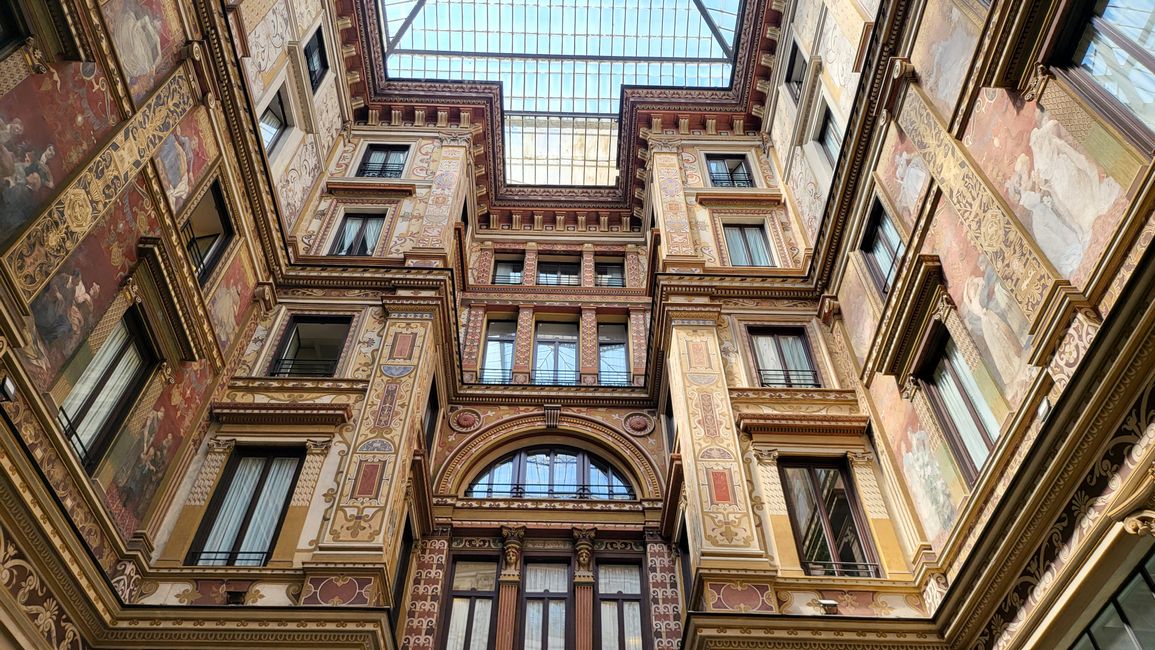
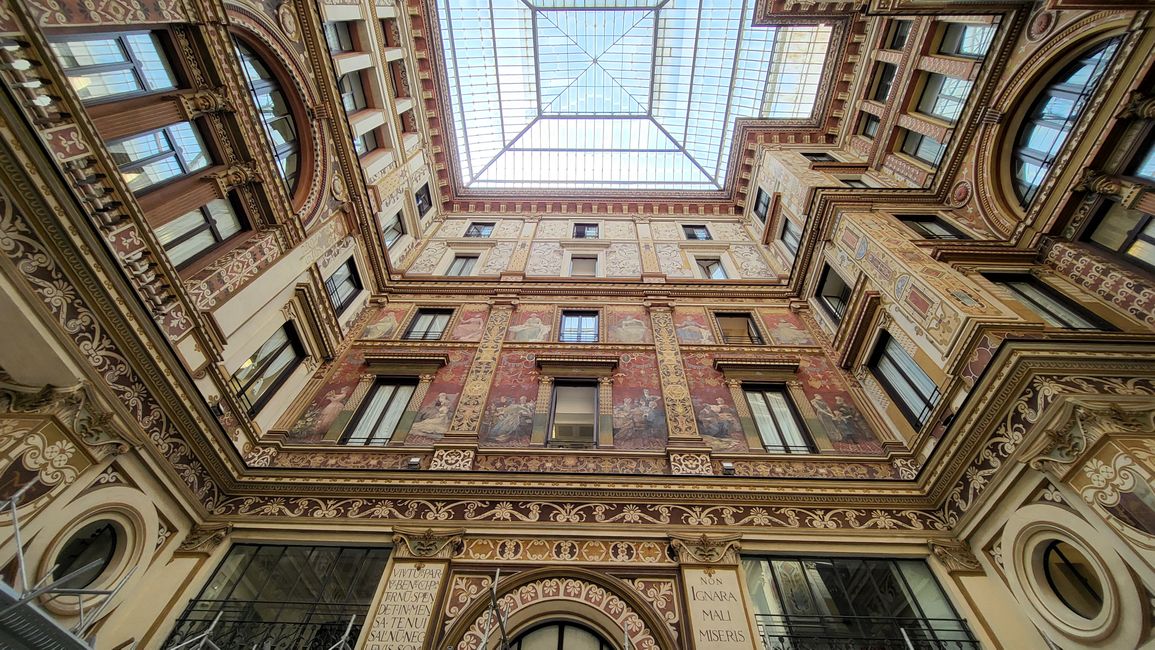
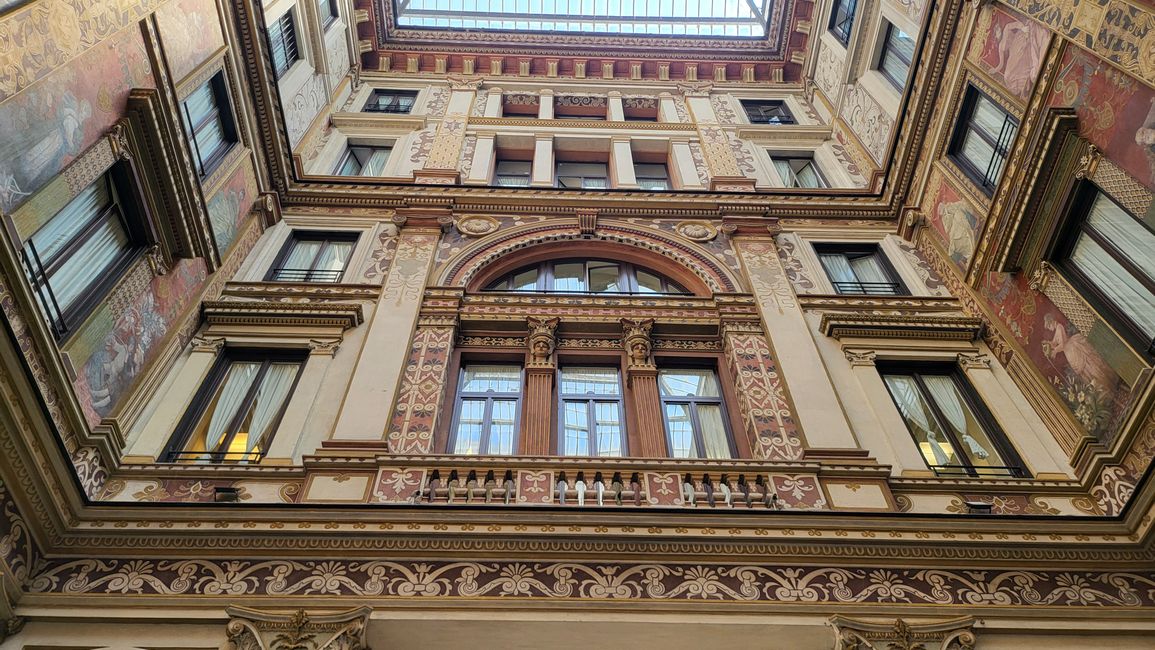
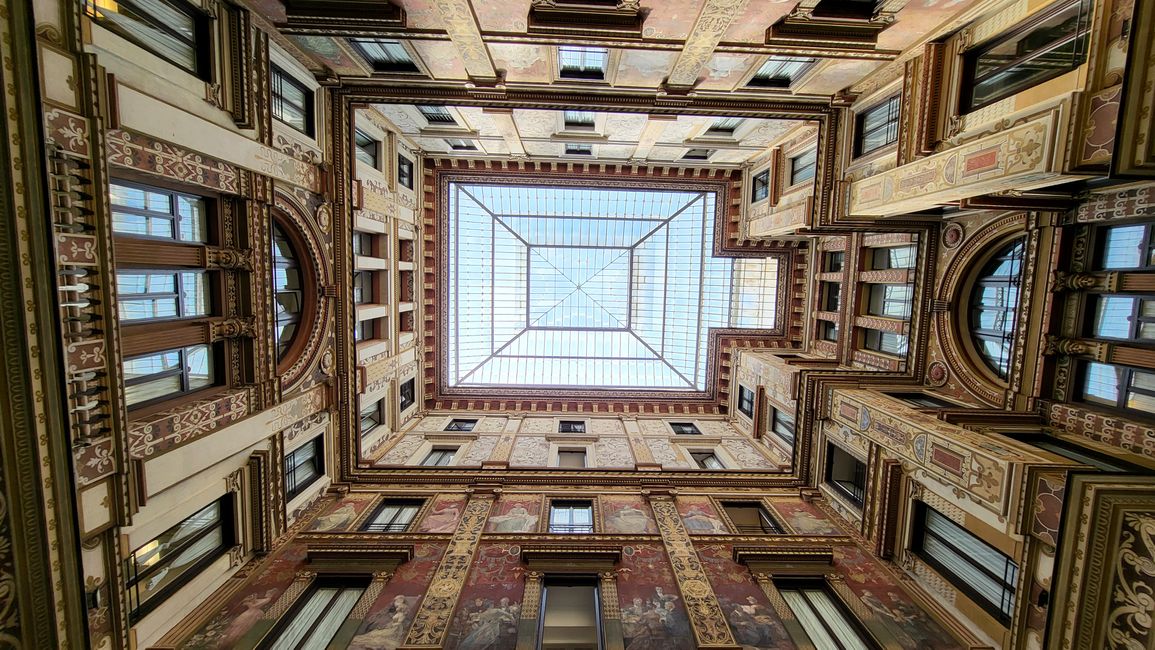
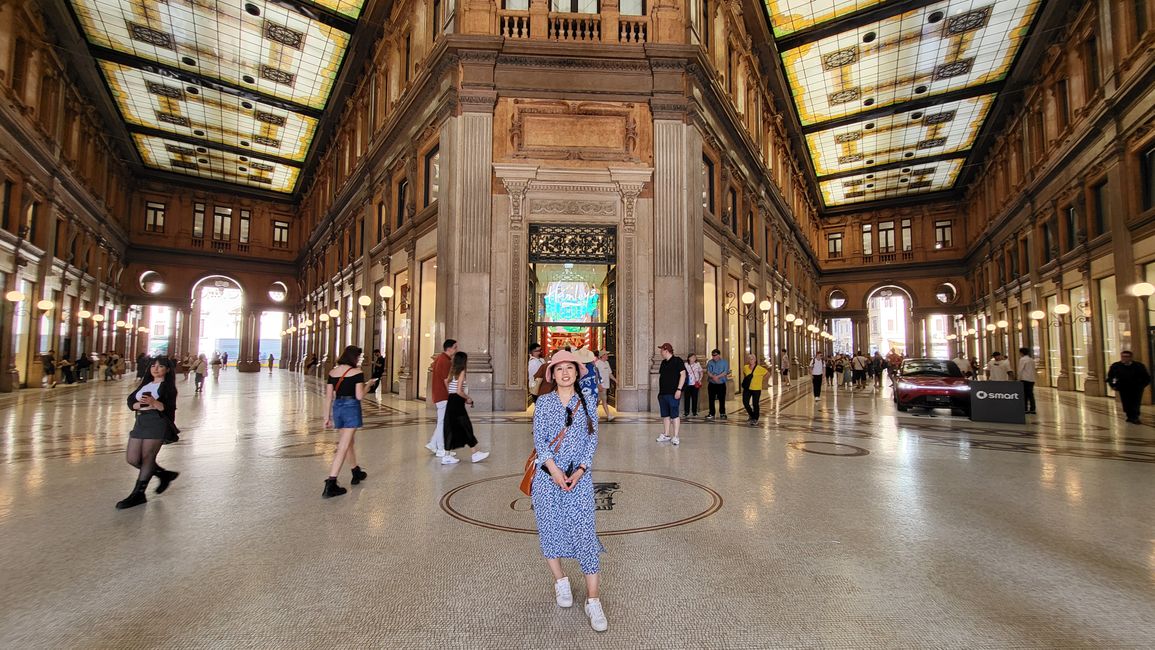
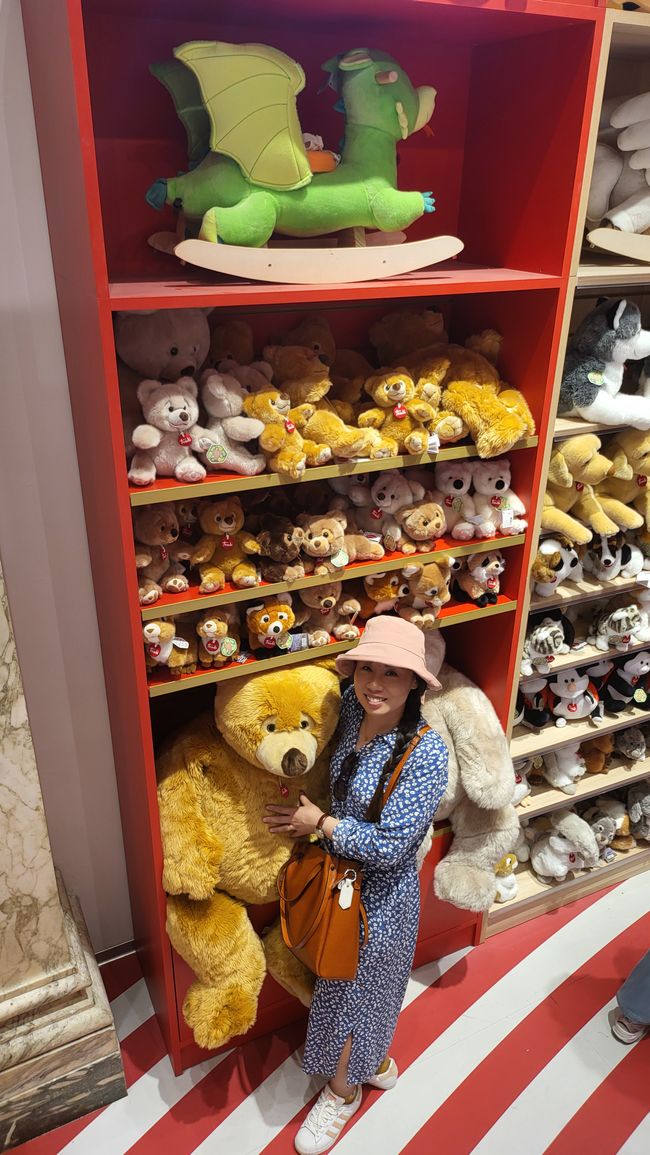
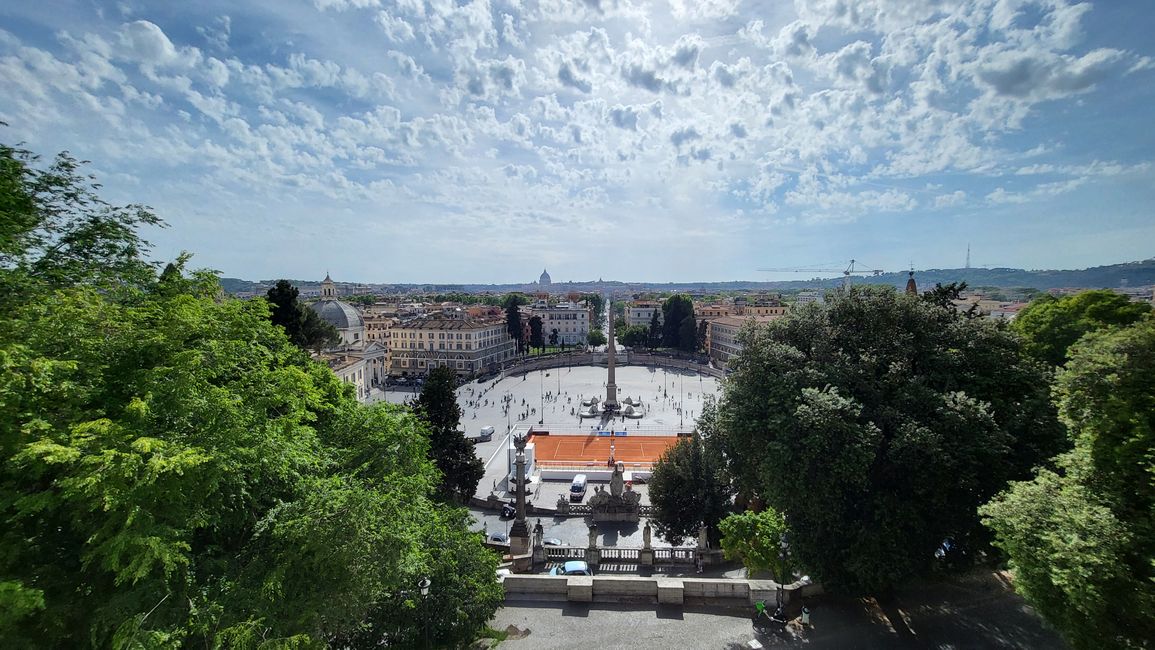
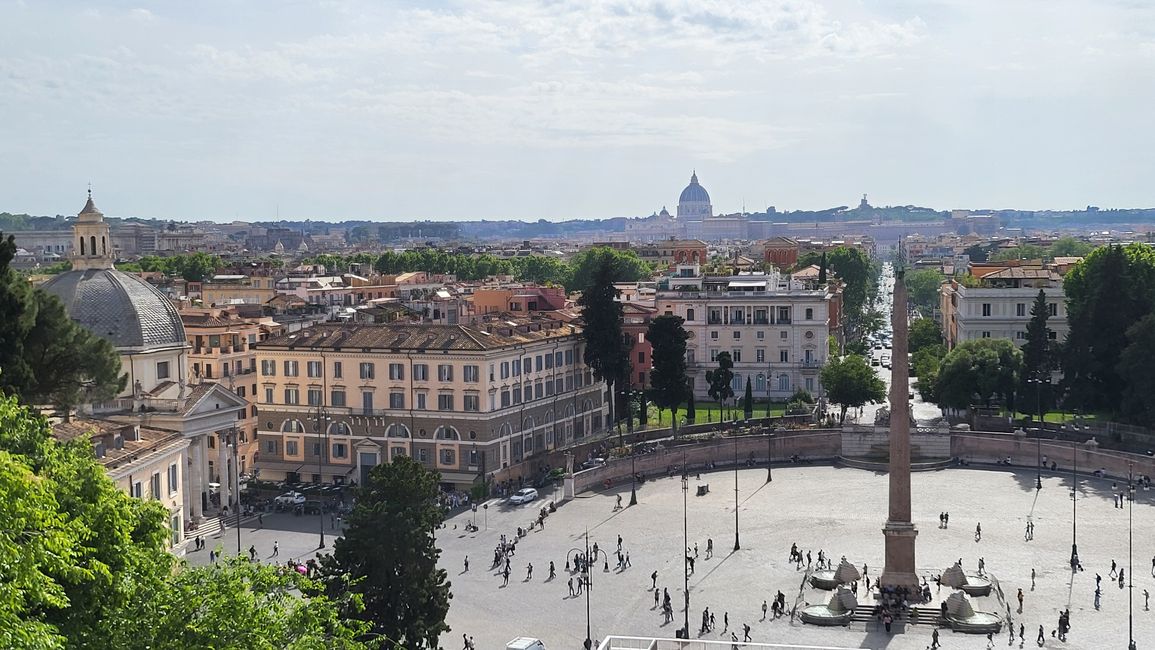
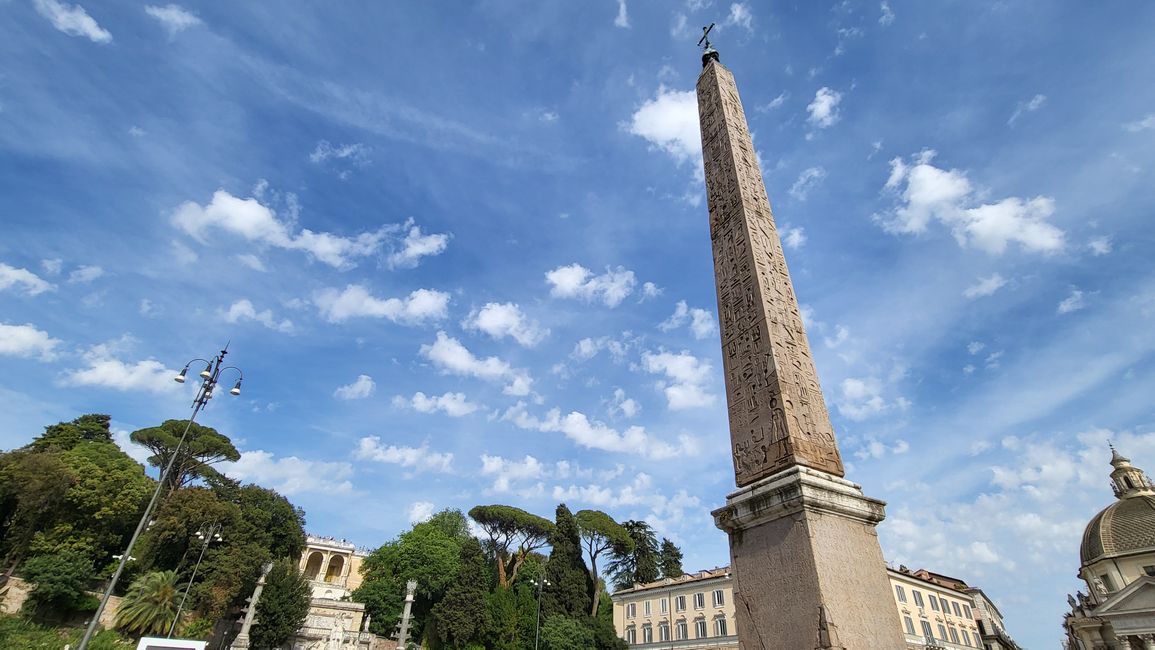
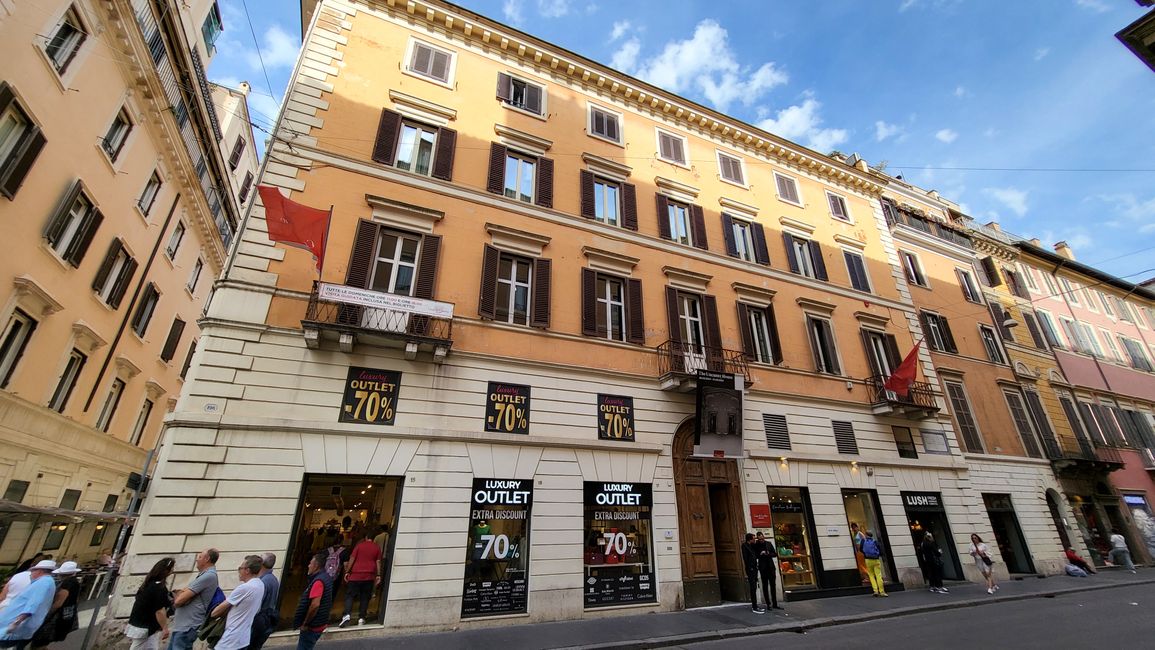
The old antique buildings in Rome represent a glorious time and have deep historical significance. But you also need a lot of imagination to imagine the marble cladding and missing parts of the building on the old bricks, which allow the splendour of this ancient time to shine. In contrast, other sights in Rome are of magnificent elegance.
A highly recommended destination is the Biblioteca Angelica, right next to the Basilica di Sant'Agostino. The library was founded by Angelo Rocca (1546-1620), who was the director of the Vatican printing office and contributed his private book collection of 20,000 volumes to the library. Old books are also available in display cases, such as an amusing depiction of a human skeleton in a book by Andrea Vesalio from 1543, whose book "De humani corporis fabrica libri septem" revolutionized anatomical teaching. He carried out the examination directly on human corpses, whereas previously only animals were used as research objects in accordance with church regulations. A natural history work by Jacob Meydenbach from 1491 shows truffles for the first time in a book in particularly beautiful hand-painted watercolors. A depiction and explanation of a parlor game is shown in a book by Andrea Ghisi from 1607. They are just illustrations, and the game probably boils down to guessing what one of the players has thought up. An old copy of the "Organon" with colored illustrations shows Aristotle with the ancient philosopher Alexander of Aphrodisias, who lived 500 years after Aristotle and commented on his works. For me, the most fascinating things were the maps and globes. A globe by Willem Janz Blaeu from 1599 with a diameter of 34 cm also shows cities in China: Beijing (Peking) can be identified as "Xuntien al Quinzai" because the city was called Shuntian fu (順天府) during the Ming Dynasty (1368-1644). The former city of Qingdao, which was occupied by German troops at the end of the 19th century, can be clearly identified as "Laicheu". The old imperial city of Nanjing can be found as "Nanquin" and is written in larger font on the globe because of its importance. Emperor Hongwu chose the city as his capital in 1368 and then had it expanded considerably. The mention of the various cities shows where ecclesiastical and commercial connections to China existed at that time.
The Galleria Sciarra has an elegant inner courtyard. This passage has a glass roof, which allows the paintings on the walls to stand out very well. These were commissioned in the 19th century by an Italian nobleman who housed the editorial and printing department of a newspaper publishing company he had bought in the building. A magnificent V-shaped shopping arcade can be found on Piazza Colonna (Marcus Aurelius Column): the Galleria Alberto Sordi. This also has a glass roof, and the light that falls into it shows off the architecture of the passages very well. The selection of teddy bears there is huge (see photo).
The Piazza del Popolo with the Obelisco Flaminio is a very famous square in the north of the old town in Rome. The obelisk dates back to 1280 BC and originally stood in Heliopolis, today's Cairo in Egypt. The obelisk was brought to Rome 20 years after Augustus' victory over his rival Marcus Antonius in Egypt and erected there. The small viewing platform on the Terrazza del Pincio above the square is not as spectacular as advertised in some Internet forums. Perhaps it was also because a tennis court had been built on the Piazza del Popolo, which spoiled the overall picture. One last stop can be made at the Casa di Goethe if you walk south from the square along the Via del Corso. Goethe lived in this house during his famous trip to Italy. Goethe wrote of his impressions in Rome: "You would have to write with a thousand pens, what is the use of a pen here, and then in the evening you are tired and exhausted from looking and being amazed."
જવાબ આપો
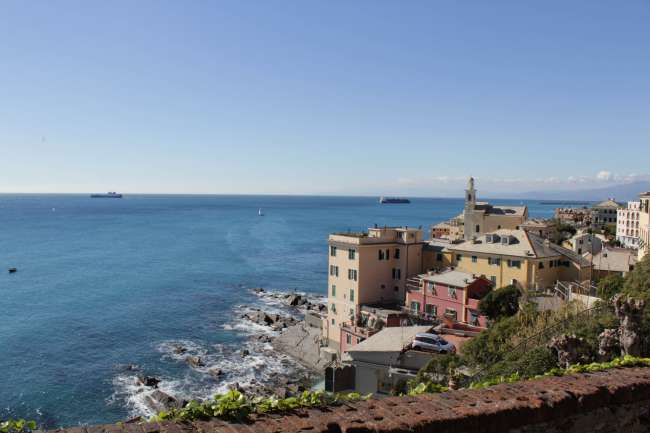
મુસાફરી અહેવાલો ઇટાલી
